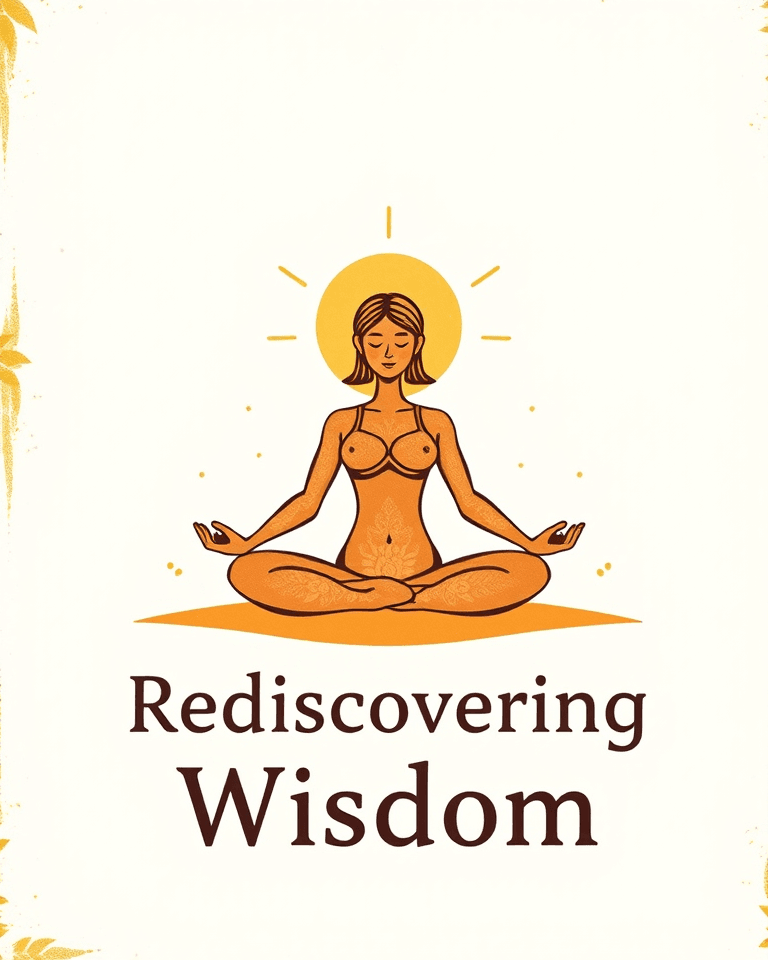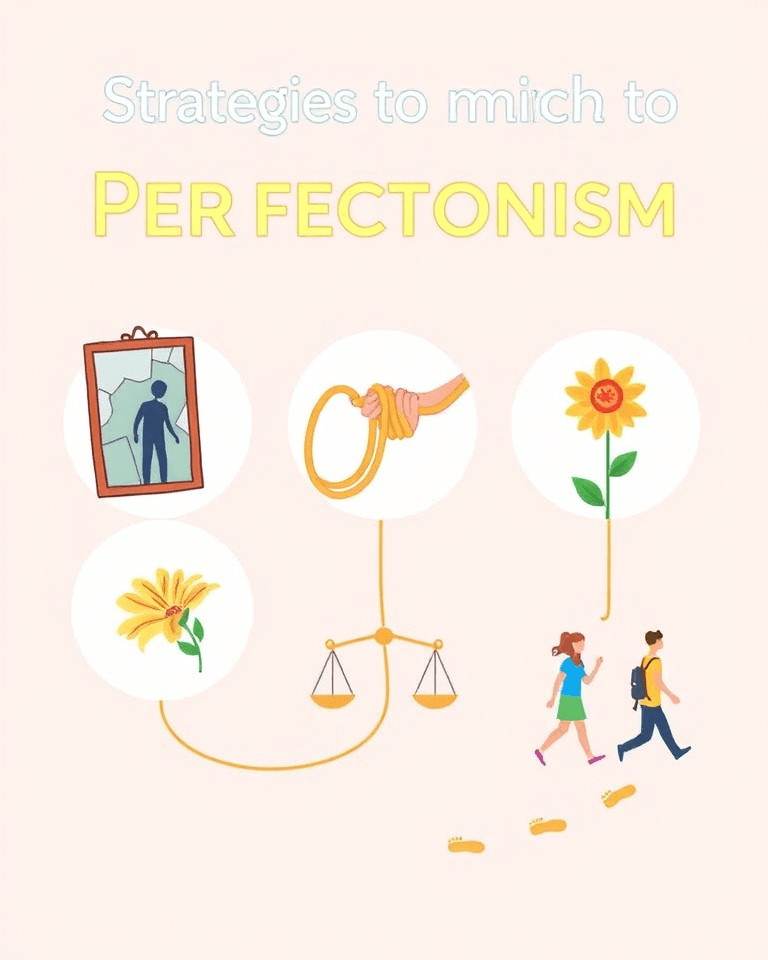Subscribe to Updates
Get the latest creative news from FooBar about art, design and business.
Author: Jessica Walker
Hi, I'm Jessica Walker, a self-improvement coach based in Austin, Texas. Over the past decade, I’ve been on my own journey of personal growth, and it’s led me to become passionate about helping others do the same. I believe that with the right mindset and tools, anyone can transform their life, and I’m here to guide you through that process. Whether you're looking to build better habits, overcome challenges, or simply live a more fulfilled life, I’m here to support you every step of the way. Let’s grow together.
The self-help industry is booming, with millions of books promising to unlock happiness, success, and inner peace. However, some find that the answers they seek may lie not within the pages of the latest self-help bestseller, but in a surprising place: a yoga book from the 1990s. These books, often overlooked, offer a unique perspective on personal growth that many find to be more profound and lasting than traditional self-help methods. The Allure of ’90s Yoga Books The 1990s marked a significant period in the popularization of yoga in the West. While yoga’s roots are ancient, this decade saw it…
The self-help industry is a multi-billion dollar behemoth, promising enlightenment, happiness, and success through various formulas and techniques. Yet, amidst the noise of contemporary advice, a seemingly unassuming book from the 1990s has quietly emerged as a beacon of genuine self-discovery for many. Not your typical self-help manual, this particular yoga book is proving to be more effective and enduring than many modern alternatives. Why is this? The answer seems to lie in its focus on holistic well-being rather than quick fixes and external validation. The Enduring Appeal of a ’90s Yoga Guide In an era dominated by social media…
In a world saturated with self-help books promising quick fixes and instant enlightenment, a surprising source of wisdom emerges from the past: a yoga book from the 1990s. While many might associate yoga with physical postures and flexibility, the true essence of yoga, as revealed in books like T.K.V. Desikachar’s The Heart of Yoga: Developing a Personal Practice, offers profound insights into living a more meaningful life. This book, published in 1995, transcends the typical exercise manual, presenting a holistic approach that rivals and, some argue, surpasses many modern self-help guides. The Unexpected Depth of ‘The Heart of Yoga’ The…
In an era saturated with self-help literature, an unlikely contender from the 1990s is emerging as a superior guide for holistic well-being: a yoga book. While countless self-help books offer advice on various aspects of life, this particular yoga book provides a more integrated approach, addressing the interconnectedness of the mind, body, and spirit. The Limitations of Conventional Self-Help Self-help books often focus on specific areas, like career advancement, relationship advice, or overcoming anxiety. While these books can be valuable, they sometimes lack a holistic perspective. They might offer techniques for managing stress, but fail to address the underlying physical…
Rediscovering Wisdom in a ’90s Yoga Classic In a world saturated with self-help advice, it might seem counterintuitive to turn to a yoga book for life guidance. Yet, a closer look at some of the foundational texts of yoga reveals a profound depth of wisdom that often surpasses the more contemporary self-help genre. In particular, the book “The Heart of Yoga: Developing a Personal Practice” by T.K.V. Desikachar, published in 1995, offers a holistic approach to self-discovery that resonates deeply even today. This book, rooted in the teachings of Sri Tirumalai Krishnamacharya, is not just about physical postures; it’s a…
In today’s visually driven world, it’s easy to fall into the trap of comparing ourselves to often unrealistic ideals of beauty. This constant comparison can lead to negative self-talk and a distorted perception of our own bodies. However, cultivating a positive body image is not only possible but also essential for overall well-being. This article explores evidence-based strategies to help you develop a healthier and more compassionate relationship with your body. Understanding Body Image Body image is more than just how we see ourselves in the mirror; it’s the complex mix of thoughts, feelings, and beliefs we hold about our…
In a world saturated with idealized images, cultivating a healthy body image can feel like an uphill battle. It’s easy to get caught up in comparing ourselves to others, leading to dissatisfaction and a negative self-perception. However, it’s essential to remember that body image is more than just physical appearance; it’s about how you feel about your body and yourself. This article provides practical tips to help you improve your body image and foster a positive relationship with your body. Understanding Body Image and Its Impact Body image refers to the way you perceive your physical self and the thoughts…
Perfectionism, often mistaken for a virtue, can be a significant hurdle to personal and professional growth. It’s a mindset that demands flawlessness, leading to stress, procrastination, and a fear of failure. The good news is that this pattern can be interrupted with conscious effort and the right strategies. Here are five powerful tips to help you overcome perfectionism and embrace a more balanced approach to life. 1. Recognize and Challenge Your Perfectionist Thoughts The first step in overcoming perfectionism is acknowledging its presence in your life. Perfectionistic tendencies often manifest as harsh self-criticism, all-or-nothing thinking, and an excessive focus on…
Perfectionism, often lauded as a virtue, can be a double-edged sword. While a drive for excellence can lead to great achievements, the relentless pursuit of flawlessness can be detrimental to one’s well-being. This article explores how to overcome perfectionism with practical strategies, offering a path to a more balanced and fulfilling life. Understanding the Trap of Perfectionism Perfectionism isn’t simply about having high standards; it’s about setting unrealistic goals and being excessively critical of oneself. It’s a mindset that can lead to a host of negative consequences, including anxiety, depression, and even social isolation. Perfectionists often focus on the outcome,…
Perfectionism, often lauded as a virtue, can be a double-edged sword. While a drive for high standards and meticulous attention to detail can lead to great achievements, an unrelenting pursuit of flawlessness can become a source of immense stress, anxiety, and even depression. This article explores the downsides of perfectionism and offers five actionable tips to help you overcome its grip, fostering a healthier relationship with your goals and achievements. The Dark Side of the Quest for Perfection The pursuit of perfection often stems from internal pressures, such as a desire to avoid failure or harsh judgment, but can also…













